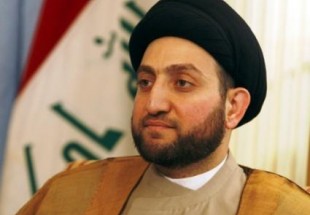
RNA - In an exclusive interview with Press TV, Ammar al-Hakim, the head of the Islamic Supreme Council of Iraq (ISCI) political party said the Shia-majority defensive umbrella group “had an important role in protecting the Iraqi people and territories, and liberating the country from the terrorists.”
“The Popular Mobilization Units include a big number of young, religious people, who responded to the call of their leader, [Iraq’s top cleric Grand] Ayatollah Seyyed Ali al-Sistani and defended the country against Daesh terrorists,” he said.
“That’s why we should preserve this powerful militia group, which has gained a lot of experience during the operations conducted over the past two and a half years.”
The Popular Mobilization Units were formed after the rise of Daesh in Iraq in 2014.
In the early days of Daesh emergence in Iraq, the volunteer fighters played an important role in reinforcing the army, which had initially suffered heavy losses amid the lightening advances of the Takfiri terrorists.
Currently, Hashd al-Sha’abi has joined forces with the army and other military groups, including Kurds and Christians, in the large-scale operation to free the northern city of Mosul, the last remaining Daesh foothold in Iraq.
Late last month, the Iraqi Parliament recognized Hashd al-Sha’abi as an official force with similar rights as those of the regular army, therefore legally establishing it as part of the National Armed Forces, which is subject to its commandership.
“Undoubtedly, voting for Hashd al-Sha’abi law was a major step in enhancing Iraq’s defense system,” Hakim also stated.
847/940